José Luis Encarnaçao: "An intelligent environment means being at our service"
There was José Luis Encarnaçao, in a day about intelligent environments, with which we chatted with tranquility and tranquility.
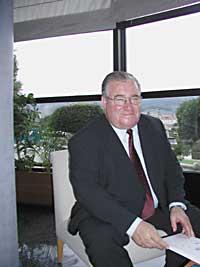
To understand what the meaning of the smart environment is, I would say it's about having intelligence around you, like we have water, light and phone. That is, to get water or light we do not have to make any effort. When we need one or the other, we open the tap or press the switch and finish. We want to achieve something similar with the intelligent environment.
Since its creation, computers have been there, on the table, surrounded by the tools necessary to interact with them, such as screen, mouse, etc. In the future, computers will be integrated into everything from clothing to furniture or windows.
The interaction between us and our environment will be constant and will occur naturally.
In the end, being an intelligent environment means that the environment is intelligent because it is at our service and is able to give what we need.
It looks like science fiction. What does it take to make smart environments a reality?To carry it out, the system must have several features. On the one hand, it must be able to appropriate the environment and for this it must be continuously informed of the environment, attentive to what happens. On the other hand, it must be responsive to changes and the behavior of the system must be consistent.
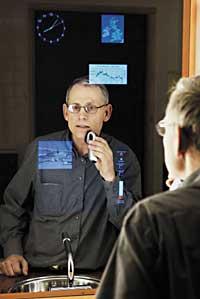
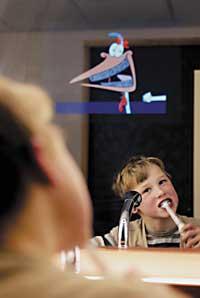
The system must be able to organize itself. In the living room of any person there are several remote controls, since each device has its own control. There is already a way to organize them by centralizing them into a single device. The intelligent environment, however, goes further, as the system will self-organize.
Finally, the system must ensure ease of use regardless of the user, so it must understand the languages of users, be easily accessible to people with disabilities, take into account those of all ages, etc.
But how is it done?In order for the intelligent environment to have all these characteristics, many researchers are working on the application, that is, from the user's point of view, and others on expanding the capabilities of computers. Above all, they want computers to have human senses.
In order to interact with human beings, computers must know the voice of the human being and understand his language, which has led to great advances. Therefore, the ear is quite developed and computers are able to speak. The view is also very advanced and has advanced in touch. But there's still a lot to be done, for example, we haven't yet been able to tell if something is cold or hot. Another undeveloped sense is smell. However, I think we are already very advanced in the most important senses in this field.
The implementation of this development is also a strategic necessity for the European industry. And it is that getting a smart environment will not only be good for the computer industry, but you will have to develop applications. And in it the European industry will play an important role.
What is the next step for Nokia or Ericsson, what is the next target for Philips, Siemens, Alcatel, or Seat and Volskwagen? What is the challenge of telecommunication and television companies? They have two options. One is waiting for Americans and Asians to develop the capabilities of computers and start working. If not, we can develop our environments and then we will have devices, systems and applications to offer them.
Therefore, Europe is bound to move forward. Do you consider enough the importance of the European Union?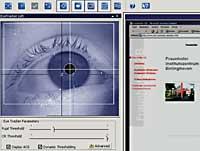
In fact, research and projects to achieve intelligent environments take a broad place in the VI. in the framework program and in the VII will be one of the main chapters. Consequently, I hope we can see good results in the coming years.
In the U.S., we are putting strength in technology and in Europe we are trying to apply, but both sides are complementary and will join in the future.
And for people with minority languages the challenge may be more interesting...Yes, no doubt. For example, a company from Euskal Herria, VicomTech, is developing an interface for Basque. By collaborating with the German institute Fraunhofer, the software and resources generated will also be useful in other languages and countries.
These kinds of advancements are critical to achieving smart environments. It was previously essential to know English in order to use computers. Now you can move in most languages, but the goal is that everyone can speak in their own native language to the computers around them and be able to understand us. Not only the literal meaning, but also the intention behind the words. For example, if someone says “I will take the umbrella”, the medium should be able to understand that it is raining or that there is danger of rain.
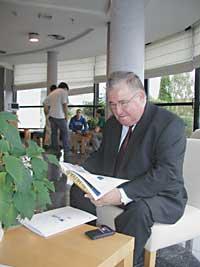
The system must ensure that the user can operate in the natural language, which is even more evident in the countries with a minority language.
In your opinion, where will we have the first intelligent environments: at work, at home?I think in a couple of areas these systems will be developed faster than in others: medicine and the automobile industry. Both are willing to make the investment needed to achieve smart environments.
However, the most terrible thing will happen when you get to the houses, it will be like a bomb explosion. When you get to homes, cars, clothing..., when you've really been in our day to day, then you'll be available to all consumers, and that will be super. Make account houses already have everything, so what will be next? I think it will be an intelligent environment.
This will revolutionize architecture and radically change life. For example, if someone has health problems, they can send timely information to the doctor through the system they have stuck in the body. The system will perform the tests and, as soon as it detects something, notify the doctor. For people with disabilities there will also be a breakthrough, as it will make their lives much easier.
However, the benefits will not only be noticed by those who have problems. It will influence the lives of all, and banking entities, shops, administration and internet work will be absolutely normal. We can access all services from home and do the work without going to work. Teaching will also undergo profound changes.
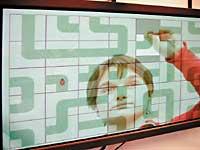
The risk of misuse of all technologies cannot be denied. The reason is that those who say that the system will let you know everything about a person and that that information can be used by a criminal to harm it. But this concern cannot stop progress. However, the development of the system must be accompanied by preventive measures. In addition, it must be legislated to punish misuse and work in education.
When they arose, the banks were a terrible temptation for thieves. But they saw the need for this money system, so they also had to put the way to protect the banks. They enforced laws and sanctions and taught society that it was not good to steal banks, that it was wrong. Church and movies contributed to this. In those days, many films were shot showing what happened to bank robbers, who eventually went to jail and then to hell.
Therefore, prevention measures should not only be technological, but also legislators and educators will have to work so that society knows where the limits are.
Josu Waliño: “We must adapt our language environment to this new form of communication”
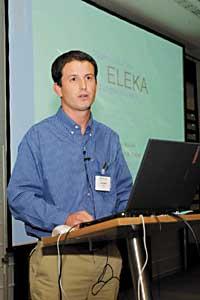
In recent years the concept of intelligent environment has become fashionable. The new lines of research indicate this, as well as government R&D&i programmes. The Seventh Framework Programme that the European Commission is preparing says it will take into account and the Science, Technology and Society Plan 2005-2008, which the Basque Government will publish soon, appears as a cross-cutting line.
In Euskal Herria there are several groups and companies working in this field. The Ikerlan team has recently advanced to invest 2.5 million euros over the next four years and the “Amigo” project is already underway, in collaboration with companies such as Philips, France Telecom or Microsoft. Other groups have realized that this is a very important field and research centers Robotiker, Labein, and VicomTech are also trying to open it.
The intelligent environment, in fact, adapts the technological environment to user characteristics. Therefore, Basque should also be taken into account. In the aforementioned Science, Technology and Society plan 2005-2008, the Elhuyar Foundation has produced a report on language technologies. This report references the smart environment, highlighting the effort that retail languages should make to adapt to it.
The text says: “We have already said that the intelligent environment will change the way we communicate with technology, based not only on language, but all the senses: gestures, touch, sight... This technology will be operational shortly. It is up to us to conquer society as well. To do this we must adapt our linguistic environment to this new form of communication with ICT.”
Josu Waliño, project director
of the Elhuyar Foundation
Buletina
Bidali zure helbide elektronikoa eta jaso asteroko buletina zure sarrera-ontzian











